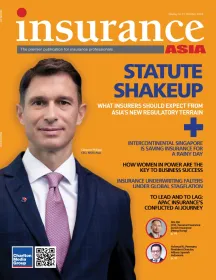
Australian watchdog finalises changes to insurance capital and reporting frameworks
The changes aim to minimise misalignments between APRA’s frameworks and AASB 17.
The Australian Prudential Regulation Authority (APRA) has finalised changes to the capital and reporting frameworks for insurance in response to the introduction of the new accounting standard Australian Accounting Standards Board 17 Insurance Contracts (AASB 17).
ALSO READ: Hong Kong insurance regulator bans former agent for two years
APRA said that the changes aim to minimise any regulatory burden caused by a misalignment between APRA’s frameworks and AASB 17, whilst ensuring sound prudential outcomes.
The changes include:
- clarifications of the regulatory capital calculation given the introduction of AASB 17;
- clarifications to enable insurers to use the AASB 17 accounting policies and principles to report financial statement information to APRA;
- additional data reporting requirements to ensure APRA continues to have adequate data for capital assessments and profitability monitoring; and
- updates and clarifications to the Life and General Insurance Capital (LAGIC) framework in order keep it fit for purpose, given the change in industry practices and operating environment over time.
Given the changes AASB 17 may have on the balance sheet of insurers depending on accounting decisions they make, APRA is conducting a targeted consultation on additional requirements to ensure regulatory capital levels are sufficient to protect the prudential soundness of insurers and encourage appropriate accounting decisions. More information is available in a response paper also being released today. Submissions on these requirements are sought by 31 October 2022.
The implementation of AASB 17 has, and will continue to, lead to significant change for the industry. APRA expects insurers to be well progressed in their readiness for the implementation of AASB 17, including identifying and managing the risks associated with the transition process.
The revised prudential and reporting standards will come into effect from 1 July 2023.



















 Advertise
Advertise


